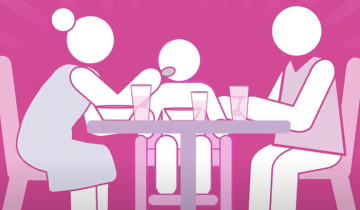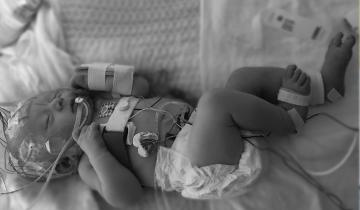In 10% to 15% of cases, there is no clear cause of CP. There is increasing recognition that genetics plays a part, but no standardized approach to genetic testing in patients with CP exists. In this study we asked the question whether both people with and without known risk factors for CP should have genetic testing.
In this 2022 episode of "Let's Talk CP" host Jen Lyman talks with neurosurgeon, Dr. Debbie Song, and physiatrist, Dr. Marcie Ward about their role in the care of Cerebral Palsy at Gillette Children's.

What do you do when you want to help your child but your local providers don't have the resources? You travel for treatment. In this personal story, Sophia's family describes their experiences traveling to Gillette Children's for treatment, including both neurosurgical and orthopedic surgeries.

Oropharyngeal dysphagia, or OPD, is an impairment of the oral or pharyngeal phases of the swallow. This can impair muscle movements and coordination of the mouth, such as the lips, tongue, jaw, cheeks, palate, and also muscles of the pharynx and the entry to the airway.

"Cerebral palsy is primarily a motor impairment so it's really important to look at what the child’s motor function is. Are they developing on the trajectory of a child who has cerebral palsy or are they developing as we would expect a baby to develop? "

Cerebral Palsy affects body movement, muscle control, muscle coordination, muscle tone, reflex, posture and balance. Depending on the part of the brain that is injured depends on how someone’s muscle tone will be effected. For people with spastic CP they have increased muscle tone because of the part of the brain that's injured. If causes very tight muscles which in turn effects the movement of the joints and of the limbs. For others who have dyskinetic CP they lose the ability to have voluntary control over their muscles, and they can have jerky and uncontrolled movement patterns.

